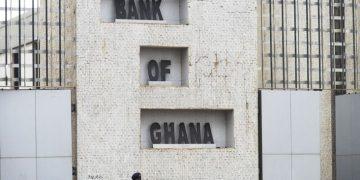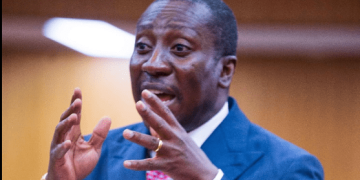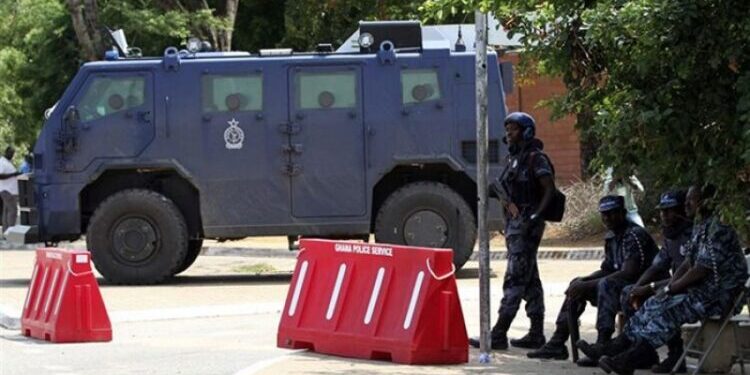The Ghana Police Service has restricted the movement of personnel and their families into Bawku and surrounding districts, citing growing threats to the lives of officers.
This is in reponse to worsening security conditions in the Bawku enclave.
An internal wireless message, originating from the Upper East Regional Command and transmitted under the authority of the Director General of Police Administration, warns of a “dangerous development” in the area. The message, signed by ACP J. W. Barison and issued to all divisional, district, and unit commanders within the Upper East Region, states that both police personnel and their families have “become targets in these areas by unknown persons.”
– Advertisement –
The directive, classified for urgent compliance, enforces an immediate and indefinite ban on all police movements into Bawku, including the surrounding Pusiga and Binduri districts. The ban affects all personnel, irrespective of whether they are natives of the area or not.
– Advertisement –
The message explicitly outlines heightened caution: “Personnel deployed on operations duties in these areas should ensure they put on appropriate personal protective equipment (PPEs) and are under armoured escort.” The implication is clear—any movement without such safeguards poses grave risks to officer safety.
The directive also acknowledges the volatility of neighbouring areas, specifically Garu, which has now been flagged as potentially dangerous under the same advisory notice. This marks a substantial escalation in the Police Administration’s threat assessment of the Upper East corridor.
Related Posts
– Advertisement –
While the Ghana Police Service has not yet issued a public statement confirming the directive, the wireless message reflects the deteriorating security architecture in Bawku, where armed violence and political tensions have intermittently surged over the past year.
This development raises critical questions about the operational viability of state security agencies in the region and the level of threat posed by local actors yet to be publicly identified. It also underscores the increasingly precarious balance between civil policing and militarised responses in Ghana’s conflict-prone northern border towns.
The directive concludes with a clear instruction: “Treat as urgent. Accept for strict compliance.”
As Ghana contends with multiple internal security challenges, the situation in Bawku is now a litmus test for the country’s ability to project authority and maintain peace in vulnerable zones. For the families of officers stationed in these areas, however, the message brings home the uncomfortable truth that the frontline is no longer just the battlefield—it is also their backyard.
Source: The Hawknewspaper



















































































